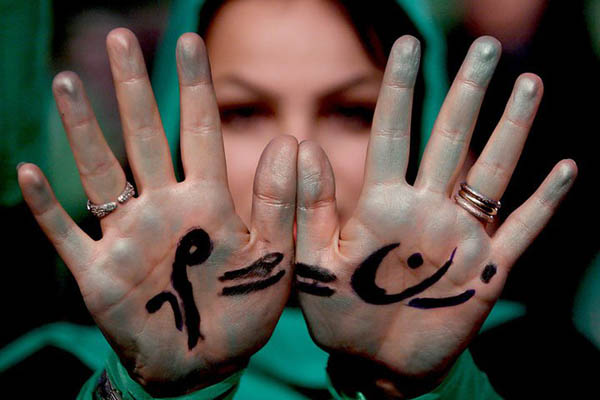UPDATES
Iran and Saudi Arabia’s new push for gender segregation
August 15, 2012 | Or Avi Guy

Universities across Iran are reportedly closing their gates to women in many fields of study in an effort to suppress student activism via gender segregation. Meanwhile, Saudi Arabia plans to create segregated women-only cities to prevent men and women mixing in the workplace.
According to Radio Zamaneh, a Persian language radio station based in the Netherlands, 36 universities in Iran have closed 77 fields of study to women, according to publications in Iranian media outlets such as Mehr News Agency and Iranian Labour News Agency (ILNA). In the upcoming academic year Iranian women will effectively be banned from such fields of study as engineering, accounting, education, counselling and chemistry after several universities (the University of Semnan, Kharazmi Tehran and the Art Schools of Tabriz, Mazandaran and Kashan) have announced that they will only be open to male enrollment for their remaining places for the next academic year. Other universities (Ardebil Mohaghegh University, Lorestan University and the International University of Imam Khomeini) closed between a dozen and two dozen areas of study to women, each. Several universities have practically closed all areas of study in the oil industry to women.
In effect, women are now barred from the civil and mechanical engineering programs. In other engineering fields (electrical, urban development, industrial, computer, architectural and textile engineering) the acceptance of new female applicants is down by nearly 25 percent. Even the humanities programs such as economics, administration, library sciences, psychology and literature have reduced their intake of women by between 30 and 40 percent.
This change in women’s university enrolment policy is attributed to a gender segregation policy implemented under the direction of Iran’s Science Ministry, and long planned by the Ahmadinejad Administration in an effort to prevent the recurrence of mass protests that followed Ahmadinejad’s reelection in 2009. Like many other protest movements, students were an important element in these demonstrations, which included large female participation. Since then, the Iranian regime has identified female university students as a subversive force. Thus, mixed-gender classes are perceived as a threat to both the Islamic principles of the republic and more importantly to the regime itself. This led the government to focus its efforts on gender segregation at universities, according to the Radio Zamaneh reports.
The policy was made explicit by government officials such as Science Ministry Adviser Mohammad Hassan Shojai, who stated: “Single-gendered universities have a higher level of scientific growth, and male and female students have a higher level of psychological tranquility.”
Women are being excluded from universities and entire fields of study, directly harming and limiting their career prospects and professional futures, apparently in the name of an oppressive regime in order to silence voices of discontent and suppress student activism. Women are an easy scapegoat for a regime whose track record on the subject of women’s rights has been less than impressive to begin with. Preventing women from pursuing higher education degrees and acquiring professions in order to squash student activism is not only a reprehensible violation of basic human rights and equality, but seems certain to harm Iran’s already bleak future economic prospects. However, the Ahmadinejad regime has always much more interest in preserving its own power and that of the increasingly dominant Revolutionary Guard Corps than in the welfare of Iranians.
Meanwhile, in Saudi Arabia authorities found a different way to deal with women in the public sphere. In order for women to participate in the job market without violating the fundamentalist Islamist interpretation of Sharia (Islamic law) which forbids public interaction between men and women, all-female cities are being planned, where women can work away from the company of men.
The plan to build the women-only cities, which will include women-based businesses and industries, is part of the government’s effort to involve women in a more active role in the country’s economic development. Only a small minority of Saudi women – around 15% – currently have jobs, and the Saudi government apparently does wish to increase these numbers. However, it seems rather odd that the only way the Saudi government can integrate women in the local economy and empower them financially under the strict Wahhabist interpretation of Islam dominant in the country involves complete separation between men and women. There seems little hope for anything-like equality and genuine improvement in women’s rights if their ability to earn a living, have a career and be financially independent depends on their perpetual isolation from the rest of society in women-only cities.
Or Avi-Guy
Tags: Iran





